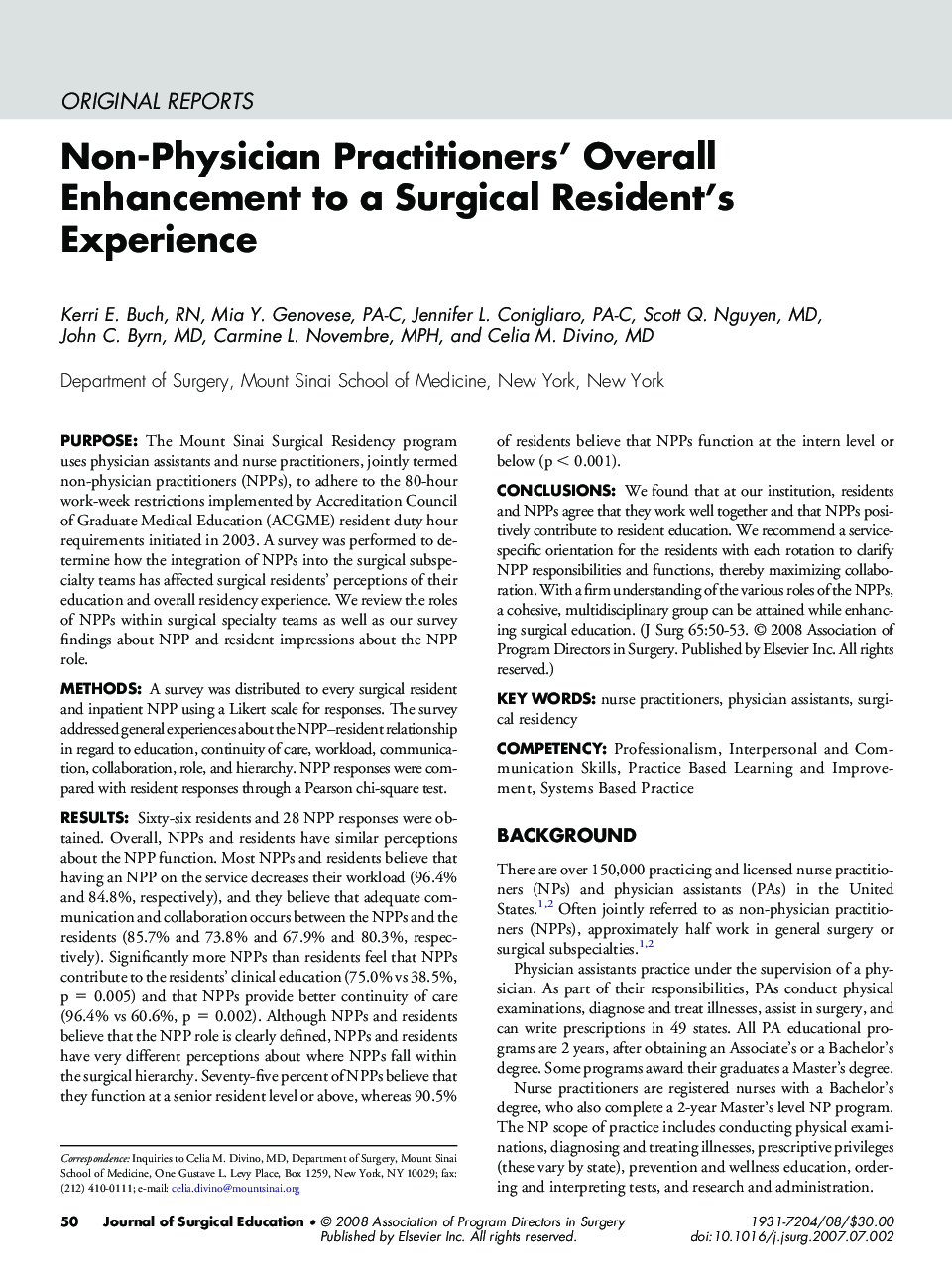| کد مقاله | کد نشریه | سال انتشار | مقاله انگلیسی | نسخه تمام متن |
|---|---|---|---|---|
| 4298758 | 1288366 | 2008 | 4 صفحه PDF | دانلود رایگان |

PurposeThe Mount Sinai Surgical Residency program uses physician assistants and nurse practitioners, jointly termed non-physician practitioners (NPPs), to adhere to the 80-hour work-week restrictions implemented by Accreditation Council of Graduate Medical Education (ACGME) resident duty hour requirements initiated in 2003. A survey was performed to determine how the integration of NPPs into the surgical subspecialty teams has affected surgical residents’ perceptions of their education and overall residency experience. We review the roles of NPPs within surgical specialty teams as well as our survey findings about NPP and resident impressions about the NPP role.MethodsA survey was distributed to every surgical resident and inpatient NPP using a Likert scale for responses. The survey addressed general experiences about the NPP–resident relationship in regard to education, continuity of care, workload, communication, collaboration, role, and hierarchy. NPP responses were compared with resident responses through a Pearson chi-square test.ResultsSixty-six residents and 28 NPP responses were obtained. Overall, NPPs and residents have similar perceptions about the NPP function. Most NPPs and residents believe that having an NPP on the service decreases their workload (96.4% and 84.8%, respectively), and they believe that adequate communication and collaboration occurs between the NPPs and the residents (85.7% and 73.8% and 67.9% and 80.3%, respectively). Significantly more NPPs than residents feel that NPPs contribute to the residents’ clinical education (75.0% vs 38.5%, p = 0.005) and that NPPs provide better continuity of care (96.4% vs 60.6%, p = 0.002). Although NPPs and residents believe that the NPP role is clearly defined, NPPs and residents have very different perceptions about where NPPs fall within the surgical hierarchy. Seventy-five percent of NPPs believe that they function at a senior resident level or above, whereas 90.5% of residents believe that NPPs function at the intern level or below (p < 0.001).ConclusionsWe found that at our institution, residents and NPPs agree that they work well together and that NPPs positively contribute to resident education. We recommend a service-specific orientation for the residents with each rotation to clarify NPP responsibilities and functions, thereby maximizing collaboration. With a firm understanding of the various roles of the NPPs, a cohesive, multidisciplinary group can be attained while enhancing surgical education.
Journal: Journal of Surgical Education - Volume 65, Issue 1, January–February 2008, Pages 50–53